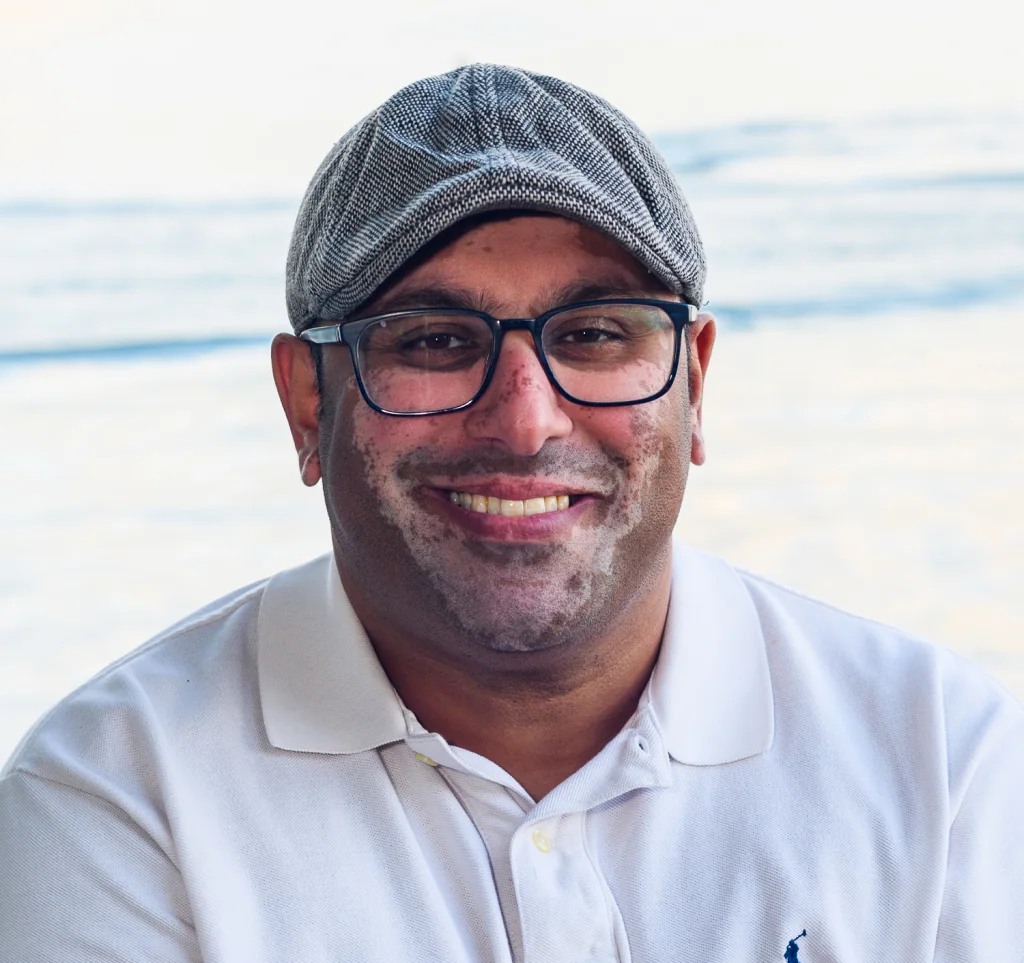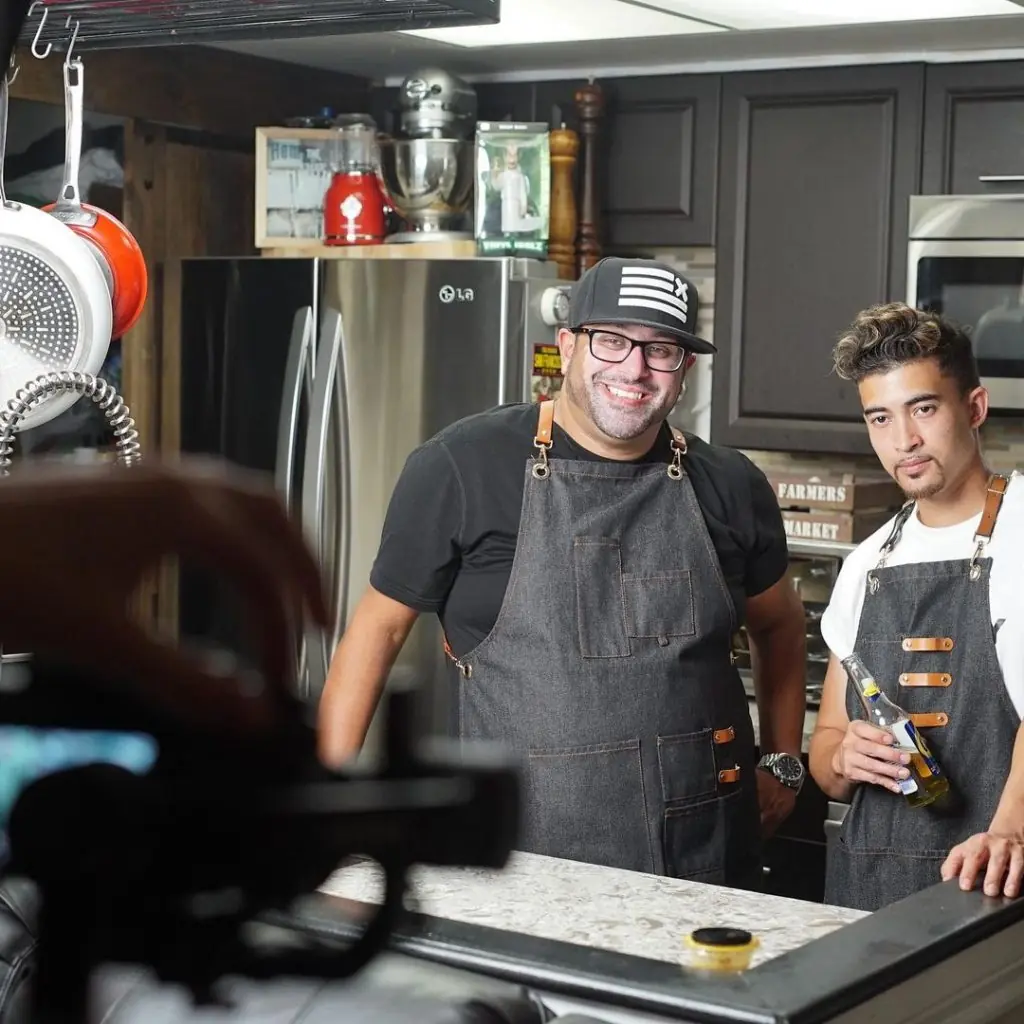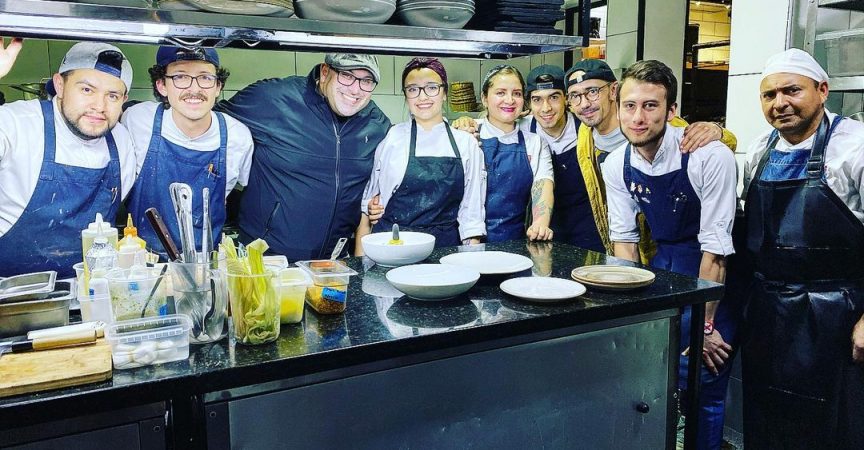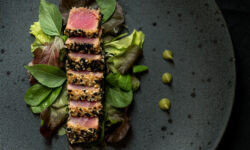The Importance of Cooperation and Inclusivity During Difficult Times with Chef Russell Auckbaraullee
Header image via Instagram
Mauritius is an island nation off the southeast coast of Africa. Its economy is dependent on tourism and fishing, and the island nation boasts populations of varied flora and fauna with many species endemic to the island.
On July 25, 2020, a Japanese ship—the bulk carrier MV Wakashio—ran aground on a coral reef off the coast of Mauritius, releasing tonnes of fuel oil before it broke in two, causing environmental, social and economic crises for the island nation. There was delay in the government response. But everyday Mauritian citizens and ex-pats weren’t going to wait to act; they mounted a massive citizen effort to save their natural world.
Chef Russell Auckbaraullee was born in Toronto to Mauritian parents. He has dual citizenship in Canada and Mauritius and he has spent much of his life travelling to and from both countries. Auckbaraullee is one of those helping from abroad by fundraising and raising awareness of the disaster. Auckbaraullee is part of a small, tight-knit community of Mauritians in Canada. He’s a big deal in Canada, but he’s an even bigger deal in Mauritius. He cooks for dignitaries, including the prime minister of Mauritius as well as politicians and celebrities in Canada, owns and runs Penthouse Catering, teaches culinary courses, and he is a television personality on Star Foodies.

Chef Russell Auckbaraullee, photo by Stacey Newman
The news of the shipwreck and fuel oil spill—heartbreaking photos of the subsequent damage coming from his relatives at home—was an immediate call to action for Auckbaraullee. At the start of our interview—always the chef—Auckbaraullee gives me a literal taste of traditional street food that you might find hawked on the streets of Port Louis—gateaux piments (fried balls of yellow split pea flour, spice, and chilies served with a piquant, sweet sauce).
Then it’s onto the business at hand, he tells me about the clean-up efforts being carried out in Mauritius. Immediately following the accident, the people of Mauritius rapidly mobilized. Their beaches, reefs, and surrounding waters already sullied by the black, sticky, noxious leaked fuel oil, regular people began organizing a grassroots clean-up effort that can only be described as an engineering and sociological marvel (Auckbaraullee tells me about vast quantities of human hair being donated and collected by Mauritians. Along with the fibrous pulp of sugar cane called “bagasse,” the hair and bagasse are stuffed into green mesh tubes which are sewn closed by hand in an assembly line of volunteers to absorb the fuel oil before it can spread further, then removed and replaced with new tubes).
Since the first days following the accident, the beaches nearest to the disaster have become muster points where the infrastructure of disaster management has been put in place. The fuel oil is highly toxic, breathing apparatuses are required as well as protective gear over the skin. Despite this, Mauritians are wading into the waters or using their boats to contribute to the efforts without hesitation.

How is it that Mauritians have managed to pull this off with so little outside support? Auckbaraullee again touts the unity at the heart of Mauritian society. He is matter-of-fact because this is how he too was raised the Mauritian way. Referring to the multicultural makeup of the country’s population—Mauritians may be of Indian, Creole, French or Chinese descent—he states that Mauritians work together. Period. No matter which cultural heritage you might belong to, Auckbaraullee says this kind of inclusivity is a beloved facet of Mauritian life.
It is respect, it is a sense of belonging no matter what. Inclusivity is taught in the Mauritian school system, it finds its ways into centres of worship and religious celebrations. Auckbaraullee says that when you go to a church in Mauritius, you’re probably going to hear about friendship. Go to a Mandir and you’re going to hear it in Hindi. A Buddhist temple, you’ll hear it in Mandarin. A Masjid, you’ll hear about friendship and unity from the Imam. Auckbaraullee thinks this ability to co-exist and respect fellow human beings is uniquely Mauritius. That Mauritians are demonstrating this cooperative spirit under the weight of such adversity is a lesson for the taking. The recovery efforts in Mauritius continue and likely will for many years to come.
Auckbaraullee was supposed to be in Mauritius when the ship ran aground. Due to COVID, he has been grounded in Canada like all of us. But he is doing all that he can to help until he can once again travel there himself. If you would like to contact Russell Auckbaraullee to offer help, or to learn more about his work, please visit him online at penthousecatering.ca.








